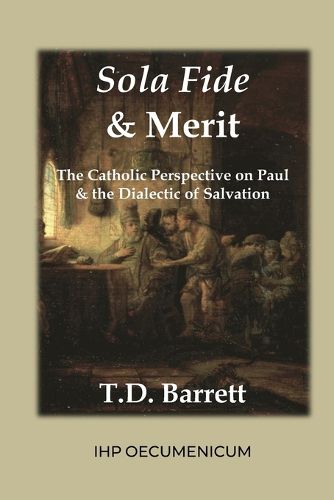Readings Newsletter
Become a Readings Member to make your shopping experience even easier.
Sign in or sign up for free!
You’re not far away from qualifying for FREE standard shipping within Australia
You’ve qualified for FREE standard shipping within Australia
The cart is loading…






In recent scholarship on the "works of the law" in Paul, it is often claimed that Catholic interpreters always held an essentially New Perspective view. In this work, T.D. Barrett shows through extensive research and quotations that all major Catholic theologians have, from the first century to present day, taken a more fundamentally Augustinian/Old Perspective approach that reveals that Paul did rule out earning salvation by good works, and was not talking about works of the Mosaic Law alone. After uncovering and establishing the historic sola fide theme in the writings of Catholic authorities, Barrett goes on to discuss how this relates to the Catholic and biblical teaching that good works can merit salvation by describing the relationship between these two seemingly contrary but ultimately complimentary teachings in terms of a dialectic, presenting the biblical, logical, and theological support for these contrasting images and their co-existence beside one another.
$9.00 standard shipping within Australia
FREE standard shipping within Australia for orders over $100.00
Express & International shipping calculated at checkout
Stock availability can be subject to change without notice. We recommend calling the shop or contacting our online team to check availability of low stock items. Please see our Shopping Online page for more details.
In recent scholarship on the "works of the law" in Paul, it is often claimed that Catholic interpreters always held an essentially New Perspective view. In this work, T.D. Barrett shows through extensive research and quotations that all major Catholic theologians have, from the first century to present day, taken a more fundamentally Augustinian/Old Perspective approach that reveals that Paul did rule out earning salvation by good works, and was not talking about works of the Mosaic Law alone. After uncovering and establishing the historic sola fide theme in the writings of Catholic authorities, Barrett goes on to discuss how this relates to the Catholic and biblical teaching that good works can merit salvation by describing the relationship between these two seemingly contrary but ultimately complimentary teachings in terms of a dialectic, presenting the biblical, logical, and theological support for these contrasting images and their co-existence beside one another.